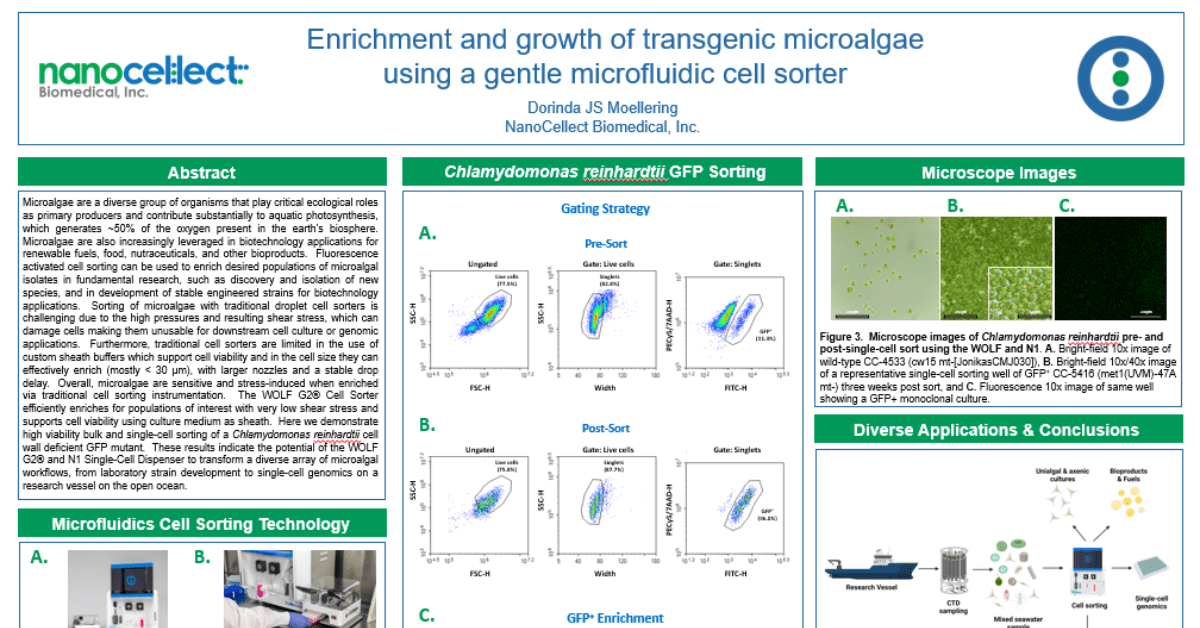Enrichment and growth of transgenic microalgae using a gentle microfluidic cell sorter

Abstract
Microalgae are a diverse group of organisms that play critical ecological roles as primary producers and contribute substantially to aquatic photosynthesis, which generates ~50% of the oxygen present in the earth’s biosphere. Microalgae are also increasingly leveraged in biotechnology applications for renewable fuels, food, nutraceuticals, and other bioproducts. Fluorescence activated cell sorting can be used to enrich desired populations of microalgal isolates in fundamental research, such as discovery and isolation of new species, and in development of stable engineered strains for biotechnology applications. Sorting of microalgae with traditional droplet cell sorters is challenging due to the high pressures and resulting shear stress, which can damage cells making them unusable for downstream cell culture or genomic applications. Furthermore, traditional cell sorters are limited in the use of custom sheath buffers which support cell viability and in the cell size they can effectively enrich (mostly < 30 µm), with larger nozzles and a stable drop delay. Overall, microalgae are sensitive and stress-induced when enriched via traditional cell sorting instrumentation. The WOLF G2® Cell Sorter efficiently enriches for populations of interest with very low shear stress and supports cell viability using culture medium as sheath. Here we demonstrate high viability bulk and single-cell sorting of a Chlamydomonas reinhardtii cell wall deficient GFP mutant. These results indicate the potential of the WOLF G2® and N1 Single-Cell Dispenser to transform a diverse array of microalgal workflows, from laboratory strain development to single-cell genomics on a research vessel on the open ocean.
PST – 011
